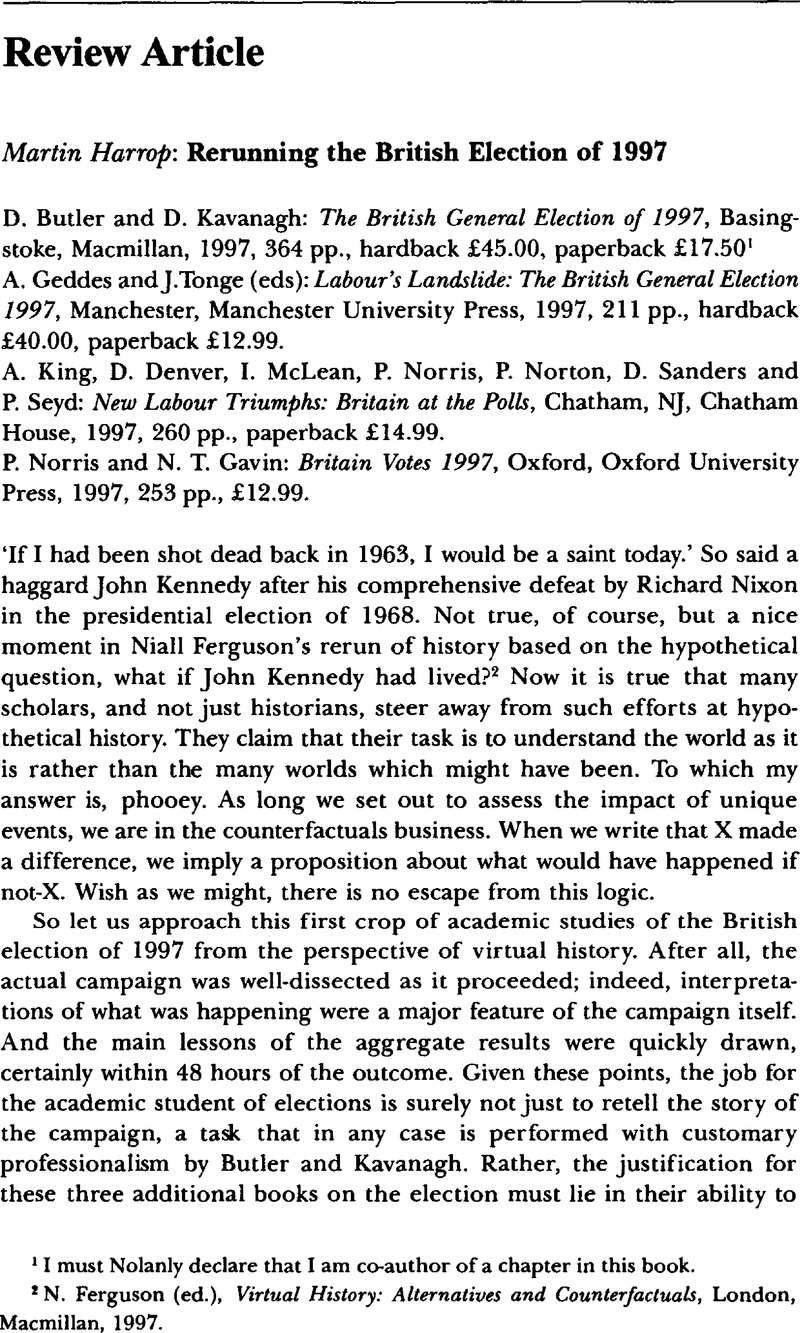No CrossRef data available.
Published online by Cambridge University Press: 28 March 2014

1 I must Nolanly declare that I am co‐author of a chapter in this book.
2 Ferguson, N. (ed.), Virtual History: Alternatives and Counterfactuals, London, Macmillan, 1997.Google Scholar
3 When Britain left the ERM, the pound stood at DM2.95. As I write, early in 1998, the rate is slightly higher: DM2.97.
4 Jones, Mark Wickham, ‘How the Conservatives Lost the Economic Argument’, in Tonge, A. Geddes, and J., Labour’s Landslide, pp. 100–18.Google Scholar
5 King, Anthony, ‘Why Labour Won ‐ At Last’, in King, A. et al., New Labour Triumphs, pp. 177–208.Google Scholar
6 Denver, David, ‘The Government that Could Do No Right’, in King, A. et al., New Labour Triumphs, pp. 15–48.Google Scholar
7 Whiteley, Paul, ‘The Conservative Campaign’, in Norris, P. and Gavin, N. T., Britain Votes 1997, pp. 34–46.Google Scholar
8 Gavin, Neil and Sanders, David, ‘The Economy and Voting’, ibid., pp. 123–32.Google Scholar
9 Norton, Philip, ‘The Conservative Party: “In Office but Not in Power”’, in King, A. et al., New Labour Triumphs, pp. 75–112.Google Scholar